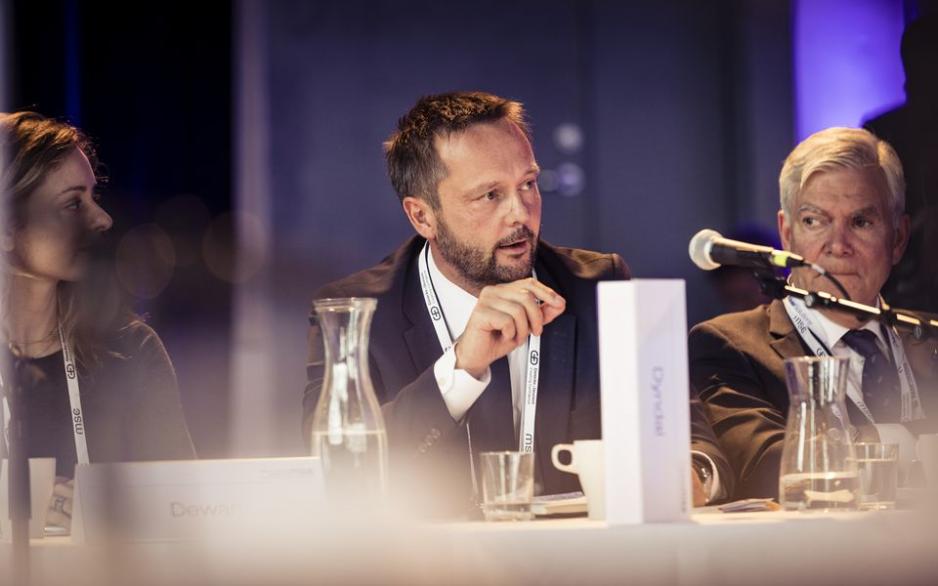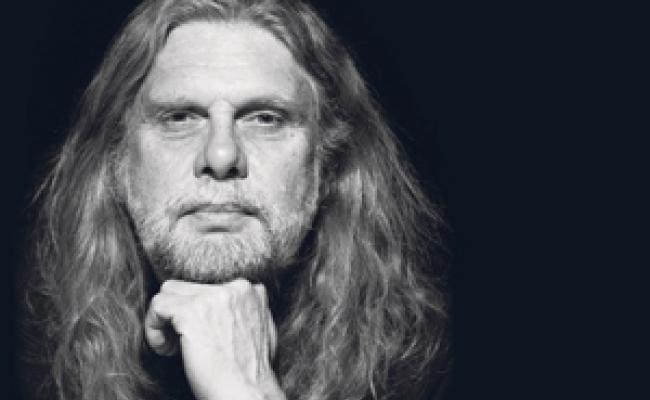Fears that a Sharpened Security Policy Debate Climate Shall Deter New, Young Voices

The mocking, sharpened debate form following Russia’s invasion of Ukraine appears to be destructive for important recruiting of more debaters, argues Gjert Lage Dyndal. He is a part-time researchers in his second position at Nord University and is serving actively as an officer in the Norwegian Air Force. (Photo: ONS/MSC)
Norwegian security policy debate needs diversity of opinion and more contributors. However, the current particularly sharpened debate amongst researchers may scare off new and in particular young potential debate participants, argues researcher and officer Gjert Lage Dyndal.
With increasing security policy tensions in light of the Ukraine conflict, the debate climate in Norway has sharpened too.
Following Russia’s invasion of Ukraine, a key strand of discussion between researchers and other debate participants has been about who was “wrong” or “right” about the invasion.
On Monday last week, 36 researchers from various Norwegian research institutions shared a joint call in Khrono (journal on academia) against what they perceive as an attempt to delimit public debate, such as the use of derogatory, person-focused presentations of people with opposing views.
The debate in and of itself also becomes an item of criticism, such as that coming from Gjert Lage Dyndal, who holds a side-job as researcher at Nord University while actively serving as an officer in the air force.
I was both disappointed and, with time, annoyed with an unnecessary debate form with personal attacks
“Destructive debate climate”
Last week, Dyndal wrote a Facebook post about what he considers a “narrow and destructive debate climate amongst individuals in Norwegian defense and security politics”.
“I was both disappointed and, with time, annoyed with an unnecessary debate form with personal attacks and a unruly tone around the time of the outbreak of the war in Ukraine and its aftermath”, the researcher and officer says to High North News.
Dyndal has noted bloating about “who was right” regarding Russia’s actions and that several researchers credited themselves with more predictive capacity than what the debate prior to the invasion gives reason to.
Commander Thomas Slensvik has noticed the same. He is a main teacher at the Staff School at the Noewgian Defense University College and also a fellow in military and system-oriented design at the Oslo School of Architecture and Design.
“The debate has, in many cases, been characterized by lacking separation of theme from person. Following the Russian invasion there have been outright personal attacks”, Slensvik says.
For instance, some researchers have been labeled by fellow researchers as admirers and apologizers of Putin. This is further described in a recent Khrono article.
Both Dyndal and Slensvik point out that they are not creating a problem of the fact that the radical turn in the Ukraine conflict is debated or that professional differences between researchers are pointed out, but rather the way in which this has been done.
I fear that new professional voices be scared away when they see how experienced debate participants act.
Fears high threshold for the young
Dyndal believes the experienced debate participants who have been scuffed recently can take it. However, he fears that the harsh debate climate will make many others, and in particular young reserachers, abstain from engaging in public debate.
“I fear that new academic voices, and in particular younger researchers and military staff in higher education programs, who should be involved with the debate, will be scared off when they see how experienced debate participants act”, the researcher and officer points out.
His point is illustrated by the fact that potential new, young voices who have been in touch with High North News recently have not wanted to make public statements in light of the current debate climate.
Dyndal is concerned that the debate community in security and defense politics is too small and that it needs new additions.
In order to promote a recruiting of new voices, it is important to consider what impressions young people may form of how they may be met as fresh contributors in the debate, he argues and adds:
“Younger people and less experienced debate participants should in a debate be met by those more experienced, however, the way in which this is done will be defining for whether or not they continue and how they learn. Personally, I would argue that there is a responsibility resting on respected professionals, both generals and professors, when it comes to considering learning and motivation for the younger ones”, Dyndal points out.
He emphasizes that he has not seen any ridiculing of younger voices so far in the debate, though with one minor exception – in which case the more experienced debate participant later apologized.
One will think at least twice before stepping out into a more hostile environment in which the debate is often more about person than about issue and arguments.
Many more will hesitate
“The harsh attacks on individuals will of course lead many more to hesitate before commenting. This applies in particular to mass media, where you are only allowed space for brief comments and are unable to enter into the deeper, underlying arguments”, Slensvik points out and continues:
“Having a view that deviates from the “established one” also becomes more difficult because you already have to face a majority and because it becomes easier with every time to go after the person and not the argument.”
He is himself familiar with several established researchers now being more hesitant about commenting in debate forums, social media and traditional media due to the debate climate.
“They are happy to share their views, however, they will not be bothered having to stand in the ensuing debate and expect ridicule from those with opposing views. Now, the image is not all black-and-white, as the attacks also have annoyed some researchers so much that they have hit they keyboard to voice their opposition”, Slensvik says.
“All in all, however, there is no doubt that many will think twice before stepping out into a more hostile environment in which the debate is often more about person than about issue and arguments. This can also deter recruitment of young people. People are deterred from entering into debate with established researchers when they see that one can be overrun in this way.”
He also adds the following comment:
“Even though the tone may be harsh, it is primarily so between established researchers. All those involved in the recent academic wars support increased participation from more debate participants, and there is an underlying culture for being mor ‘cautious’ around rookies. In that respect, I will recommend all who so desire to participate in the public debate”, Slensvik says.
His colleague Dyndal also encourages leaders for academic communities to work more on recruiting more and in particular young voices to the debate.
Also read
This article was originally published in Norwegian and has been translated by HNN's Elisabeth Bergquist.



